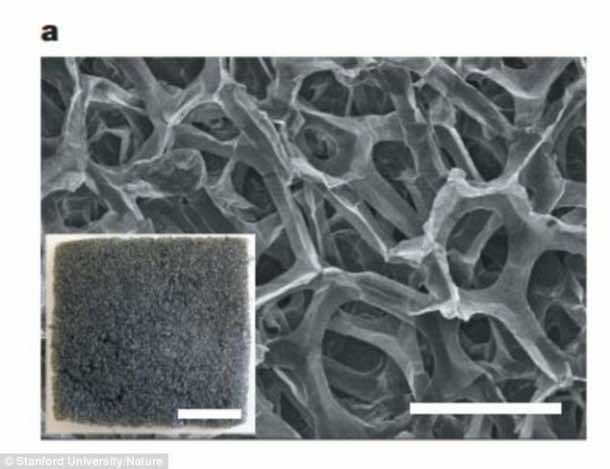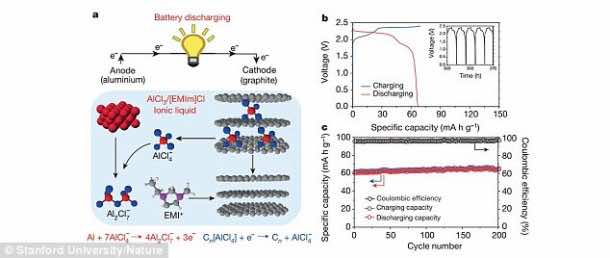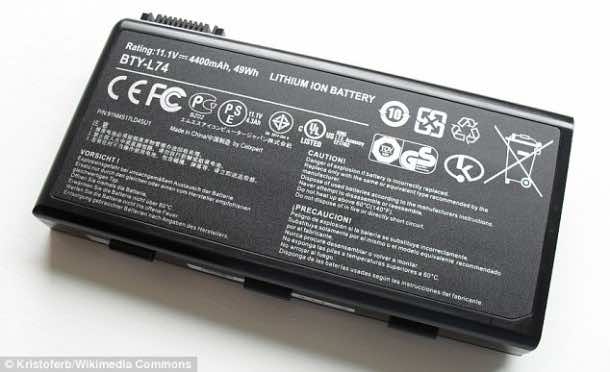Don’t you just hate it when you have to wait hours for your phone to be fully charged? Say hello to a new aluminum battery that is capable of charging itself completely within 60 seconds. The technology is reportedly safer and greener than the existing technologies while also being flexible. As per designer, the battery is the first aluminum battery that is ‘fast-charging, long-lasting and inexpensive.’
The battery has been developed at Stanford University, California and the conclusions have been published in the Nature journal. Hongjie Dai, lead author and professor of Chemistry at the university, said, “We have developed a rechargeable aluminum battery that may replace existing storage devices, such as alkaline batteries, which are bad for the environment, and lithium-ion batteries, which occasionally burst into flames. Our new battery won’t catch fire, even if you drill through it. Aluminum is cheap and has a low flammability coupled with a high-charge storage capacity.”
The battery features two electrodes; negatively charged anode that has been created from aluminum and a graphite cathode charged positively along an ionic liquid electrolyte. The mentioned components are located inside a pouch that is polymer coated and is flexible. Ming Gong, Stanford graduate student, said, “The electrolyte is basically a salt that’s liquid at room temperature, so it’s very safe. Lithium-ion batteries can be a fire hazard. In our study, we have videos showing that you can drill through the aluminum battery pouch, and it will continue working for a while longer without catching fire. But lithium batteries can go off in an unpredictable manner in the air, the car or in your pocket. Besides safety, we have achieved major breakthroughs in aluminum battery performance.”
The battery is also capable of surviving more than 7,500 cycles as compared to 1,000 charge cycles of conventional batteries. Mr. Gong further added, “Another feature of the aluminum battery is flexibility. You can bend it and fold it, so it has the potential for use in flexible electronic devices. Aluminum is also a cheaper metal than lithium. At present the rechargeable aluminum battery generates about two volts of electricity, the highest achieved yet with aluminum.”

Professor Dai explained, “Our battery produces about half the voltage of a typical lithium battery. But improving the cathode material could eventually increase the voltage and energy density. Otherwise, our battery has everything else you’d dream that a battery should have: inexpensive electrodes, good safety, high-speed charging, flexibility and long cycle life. I see this as a new battery in its early days. It’s quite exciting.”


